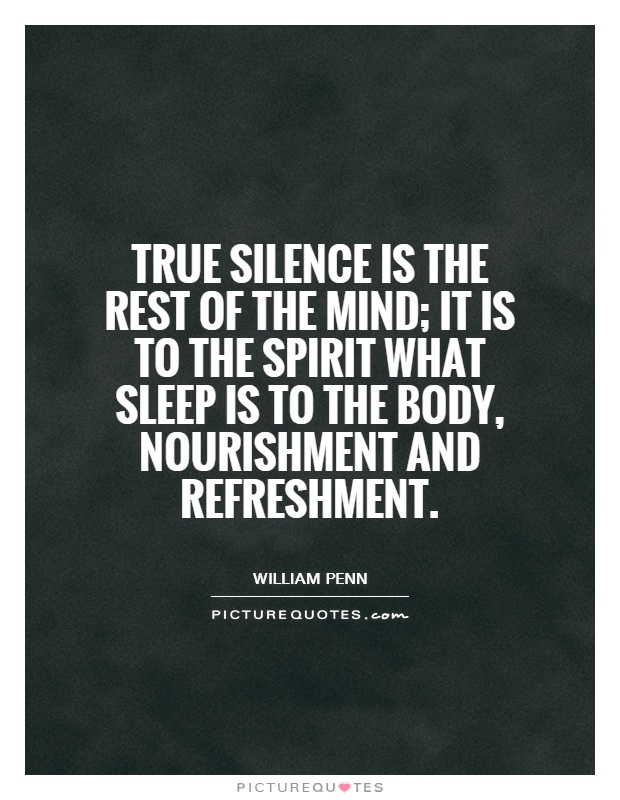True silence is the rest of the mind; it is to the spirit what sleep is to the body, nourishment and refreshment

True silence is the rest of the mind; it is to the spirit what sleep is to the body, nourishment and refreshment
William Penn, the founder of the province of Pennsylvania and a prominent Quaker leader, understood the importance of true silence in nurturing the spirit and mind. In his writings and teachings, Penn often emphasized the value of inner peace and stillness as essential for personal growth and spiritual well-being.Penn believed that true silence was not merely the absence of noise, but a state of inner calm and tranquility that allowed for reflection, introspection, and connection with the divine. He saw silence as a powerful tool for self-discovery and self-improvement, a way to quiet the mind and listen to the inner voice of wisdom and guidance.
For Penn, true silence was akin to rest for the mind, a much-needed break from the constant chatter and distractions of everyday life. Just as sleep is essential for the body to rest and rejuvenate, silence was necessary for the spirit to find nourishment and refreshment. In the quiet moments of stillness, Penn believed that one could find clarity, peace, and a deeper understanding of oneself and the world.
In his famous work "Some Fruits of Solitude," Penn wrote, "True silence is the rest of the mind; it is to the spirit what sleep is to the body, nourishment and refreshment." These words reflect Penn's belief in the transformative power of silence and its ability to nourish and rejuvenate the soul.












 Friendship Quotes
Friendship Quotes Love Quotes
Love Quotes Life Quotes
Life Quotes Funny Quotes
Funny Quotes Motivational Quotes
Motivational Quotes Inspirational Quotes
Inspirational Quotes